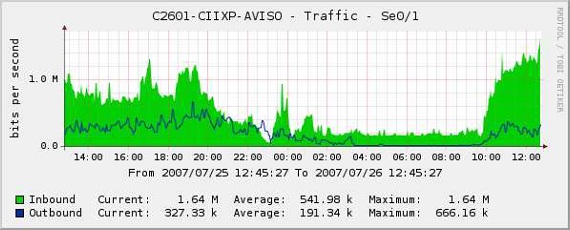Cote d’Ivoire stakeholders meet to discuss Internet exchange point
The 2012 West Africa Internet Governance Forum recently discussed how an Internet exchange point (IXP) created five years ago in Cote d’Ivoire could be made operational once again. The IXP began in 2007 as Internet traffic (mainly via the SAT3 cable) started to increase. Wholesale bandwidth costs were extremely high (2Mbps sold for US$4,000) and the hope was that peering of bandwidth could reduce access costs for everyone. Eight ISPs signed up for the IXP, but due to low local traffic (in July 2007, Aviso was peaking around 1.6Mbps inbound), the project was put on hiatus in 2009.
The process to revive CI-IXP is moving along nicely after fifty players from public and private organizations in the telecommunications sector recently took part in a workshop on 23-24 July in Abidjan to revive the national IXP. The findings of the workshop are anticipated to help get the project back on track so that ISPs can drive Internet costs even lower.
Abidjan.net reported on the event, but perhaps the most detailed information comes to us from Twitter. Many of the same players Tweeting about WAIGF have done so regarding “CivIXP” (also known as “CI-IXP”). We gathered a few interesting stats, opinions, and more (sourced mainly from @nnenna):
- Mohamet Diop, international expert for the IXP came from Senegal to speak to the economics of the project. He says there are 23 IXPs in 19 countries in Africa (we count a possible 32 in 20 countries)
- Kassim Assirou of ISOC states 20-35% of Internet traffic is local
- CI ISPs withdrew from the IXP in 2009 because of low traffic
- A committee of 1 MPTIC, 2 ATCI, 1 VITIB, 1 ISOC, 1 IGICI has been created to further discuss the IXP
- The World Bank financed Benin’s program, not as a debt but as a donation
- Botton line: Africans must understand that peering is a must
An initial report on CI-IXP from 2006-2007 can be found at NSRC.













 Twitter
Twitter Facebook
Facebook Pinterest
Pinterest